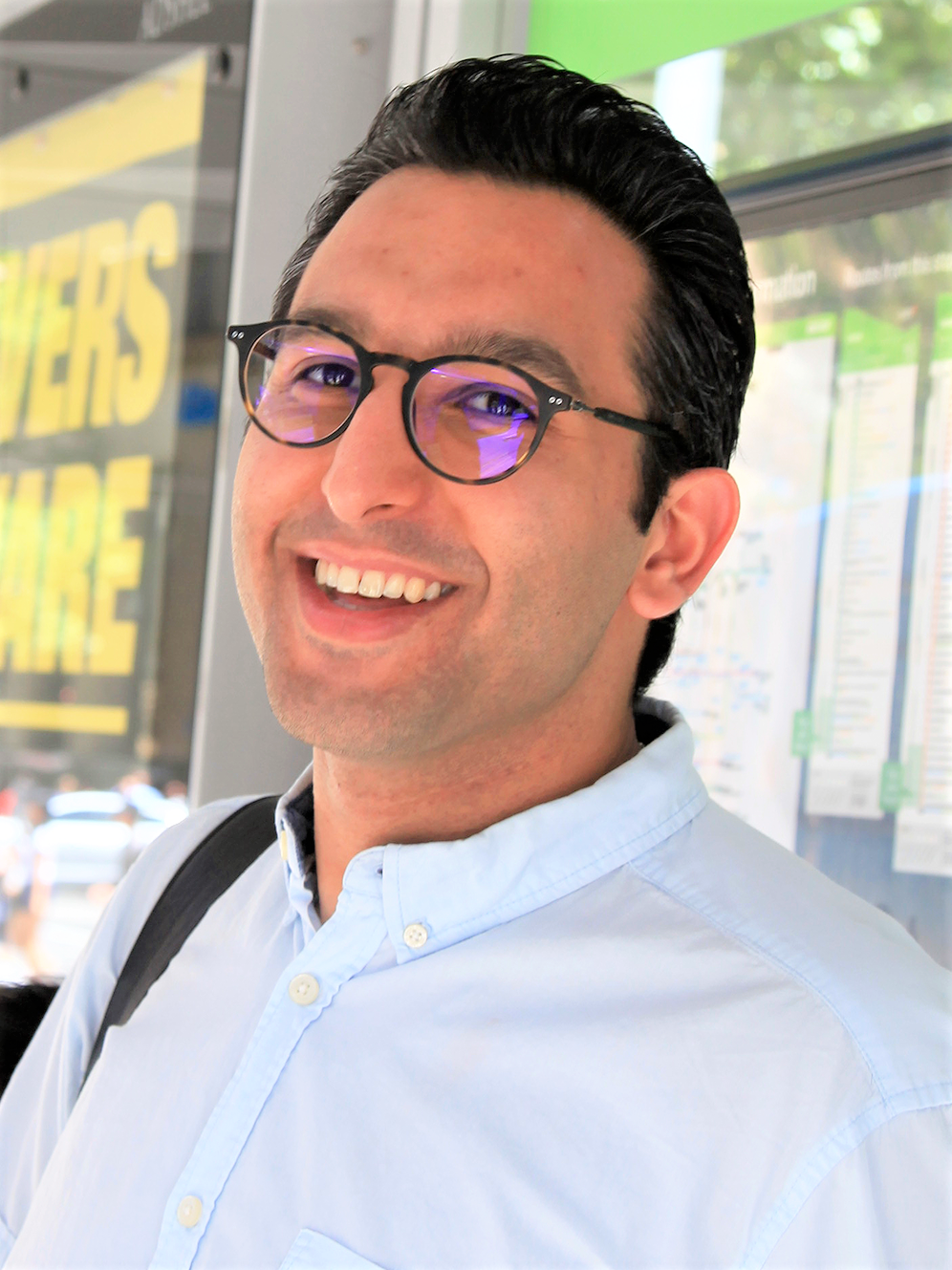
In December 2017, when I first attended AGU in New Orleans, I was very eager to learn about the AGU community. In conversation with some new friends, I heard that Hydrology Section has technical committees (TCs) with student members. I googled and found out that there is a TC for Hydrological Uncertainty (HU), which has been my own research area. I knew many of committee’s members from their papers and research. I was very excited, and sent an email to Mary Hill and Ming Ye, previous chairs of the HU-TC: “I’m very interested to join the Hydrologic Uncertainty Committee, and I was wondering what the process is for that, and what the expectations are from the (student) committee members.” I was invited to the annual TC meeting chaired by Saman Razavi, and then they encouraged me to apply to join the committee. From this very beginning everyone was encouraging and welcoming. I got to know different members of this committee who are leading researchers in this area. Being included in the TC communications and decision making processes has been a great learning experience: to know what topics and issues are of interest to this community, how an international technical committee is coordinated, how they discuss and make decisions, how the conference sessions are structured, etc.
Working with Saman Razavi and Xingyuan Chen, current chair and co-chair of the TC, has been a delight. They are both very energetic and methodic in their leadership roles. To reach out to a broader audience we have upgraded from the TC’s older blog http://aguhu.blogspot.com/ to a new website http://hydrouncertainty.org/, with regular updates on news and workshops in the area of uncertainty. Particularly, we developed and continuously update a library of publications on uncertainty, led by our other student committee member, Kasra Keshavarz from University of Saskatchewan. This has been a great reference point for those who are interested to dive into the uncertainty literature. Since September 2018, we’re active on Twittersphere https://twitter.com/AGU_HU as well.
I’m very grateful for this opportunity to be a member of HU-TC. I feel that I now have an extended network of mentors that contribute to my professional development, even if they don’t know it themselves. And this all started because I dared to ask. I know from experience that many students and early career scientists (ECS), as much as they are eager to be active, are hesitant or unsure to reach out. They may perceive established scientists or such committees as intimidating, fear rejection or judgement, or feel incompetent. This is even more challenging for those from minority cohorts, e.g. women, people of color, LGBTIQA+, non-native English speakers, etc [see our study on gender (in)equality in the Earth and space sciences as an example https://doi.org/10.1029/2019EA000706]. I certainly acknowledge such fears and feelings, as I personally belong to a few minority groups. Yet I promise we can make it through to the other side of anxiety and fear, where we find excitement, self-confidence, and new colleagues and friends. While many established scientists may come across as too smart, too busy to bother, or even arrogant, they usually have a lot of room at the bottom. They care and like to nurture the next generation. They would see their younger selves in us, when we hit the right buttons.
So, I’d like to encourage my peers, students and ECS, to be proactive about their involvement in professional communities such as AGU’s TCs. This may seem a bit more challenging during a global pandemic with less chances of face-to-face interactions and networking. That said, most technical communities are active and accessible through online platforms e.g. email and Twitter. There is no shame nor harm in approaching (e.g. emailing!) people you don’t know to express your interest in community service, to help and to learn. If they say no, just try other opportunities. Of course, it is important to be professional and strategic about what you say, and how you say it. But the bottom line is that sometimes we — as students and ECS — should create our own opportunities. I’d like to think that a genuine intention, to help the community and learn from its leaders, is easy to read.
About the author
Sina Khatami (@SinaKhatami) is now a Postdoc Researcher at Stockholm University and a committee member of AGU’s Hydrology Section Hydrological Uncertainty Technical Committee since 2018. Correspondence to sina.khatami@natgeo.su.se.
This article was first published in AGU Hydrology Section Newsletter (July 2020). Upon the invitation of Scott Tyler (Hydrology Section President at AGU), student members wrote their TC article for this newsletter.